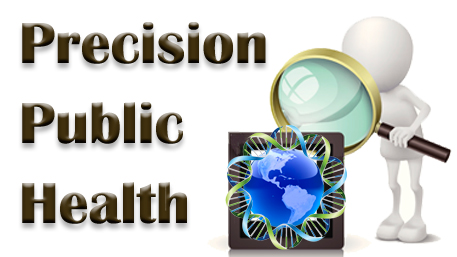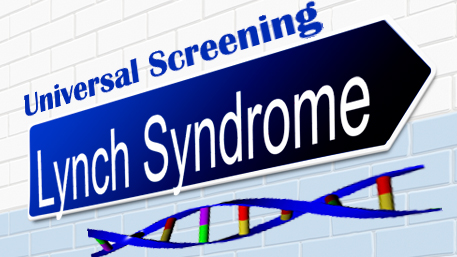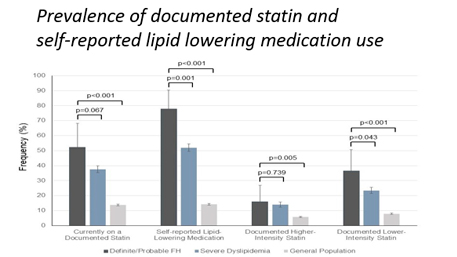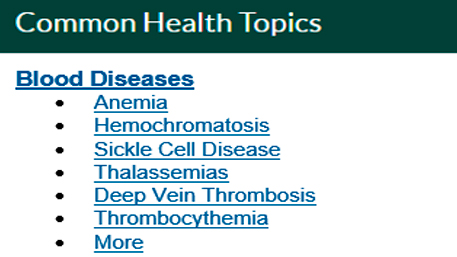Category: genomics
Precision Public Health: What Is It?

In the past two years the term “precision public health” has been increasingly used in the scientific literature and at professional meetings. A quick PubMed search of the term shows 28 papers (as of April 30, 2018) dating back to our 2016 paper, “Precision Public Health for the Era of Precision Medicine.” The papers cover Read More >
Posted on by 1 CommentUniversal Screening for Lynch Syndrome: Can Tumor Sequencing Have a Larger Public Health Impact on Treatment and Prevention of Colorectal Cancer?

Lynch syndrome (LS) is the most common hereditary syndrome associated with increased risk of colorectal cancer (CRC), accounting for about 3% of CRC patients. LS is a dominantly inherited condition with mutations in several mismatch repair (MMR) genes. Persons with LS are also at increased risk for endometrial and other cancers. Lynch syndrome affects 1 Read More >
Posted on byEvaluating the Impact of Precision Medicine: How Ivacaftor Reduces Hospitalizations of Patients with Cystic Fibrosis

Precision medicine takes into account individual factors in treating disease, targeting interventions to patients that can benefit the most. Population-based studies evaluating precision medicine approaches are important to determine whether the field can fulfill its promise for improved health outcomes. A prime example of precision medicine is ivacaftor, a small molecule drug originally developed to Read More >
Posted on byTracking the Translation of Genomic Discoveries to Population Health Benefits: Connecting the Dots from Investment to Population Health Information

In March 2018, the CDC Office of Public Health Genomics launched the Grant Database (GDB), an extension of the Public Health Genomics Knowledge Base (PHGKB). GDB “connects the dots” between funding investment and publications on translation, implementation, and evaluation of population health impact of genomics and precision medicine. We launched PHGKB in 2016, as an Read More >
Posted on byGenomics and Population Health Action: The Collaboration Continues!

In March 2018, I attended the third annual meeting of leaders of the Genomics and Population Health Action Collaborative (GPHAC). GPHAC was formed late in 2015 under the auspices of the National Academy of Medicine’s Roundtable on Genomics and Precision Health to foster collaboration of more than 50 diverse stakeholders, including state public health programs, Read More >
Posted on byFamilial Hypercholesterolemia is Common and Undertreated in the United States

Familial hypercholesterolemia (FH) is an autosomal dominant genetic disorder that significantly increases the risk of atherosclerotic cardiovascular disease and premature deaths from heart attacks and stroke. The national prevalence of FH and rates of screening, awareness, and treatment with statins among individuals with FH and other causes of high lipid levels (dyslipidemias) remain largely unknown. Read More >
Posted on byLeap of Faith or Smart Investment? Early Integration of Whole Genome Sequencing in Healthcare Systems

Discovery science in genomic medicine has generally enjoyed longstanding large collaborations for data sharing and joint analyses. Synergies among collaborators has accelerated major advances in our understanding of the genetic basis of health and diseases. More recently, some of the same scientists have come together to aggregate data for more applied clinical research with NIH Read More >
Posted on byHLBS-PopOmics: NHLBI and CDC partner to launch a public health genomics knowledge base for heart, lung, blood, and sleep disorders

Timely and targeted dissemination of published research findings is an important step in accelerating the pace of turning discovery into health. To achieve this goal in human population genomics, the NHLBI has partnered with the CDC Office of Public Health Genomics (OPHG) to launch a heart, lung, blood, and sleep disorders knowledge base in population Read More >
Posted on bySaving a Million Hearts: One Heart at a Time!

Cardiovascular disease (CVD), principally ischemic heart disease and stroke, remains the leading cause of U.S. deaths for men and women and all races and ethnicities in spite of major progress in its prevention and treatment. CVD is also the greatest contributor to racial disparities in life expectancy. In 2012, 120 public and private partners and Read More >
Posted on byDear John, There’s no point in waiting any longer. Let’s call it quits…

In 1999, Dr. Francis Collins, director of the Human Genome Project, provided a bold vision for what the practice of genomic medicine might soon look like. Collins described the case of a hypothetical man named “John,” a 23 year-old smoker living a decade into the future in 2010. “His substantial risk of contracting lung cancer Read More >
Posted on by 4 Comments